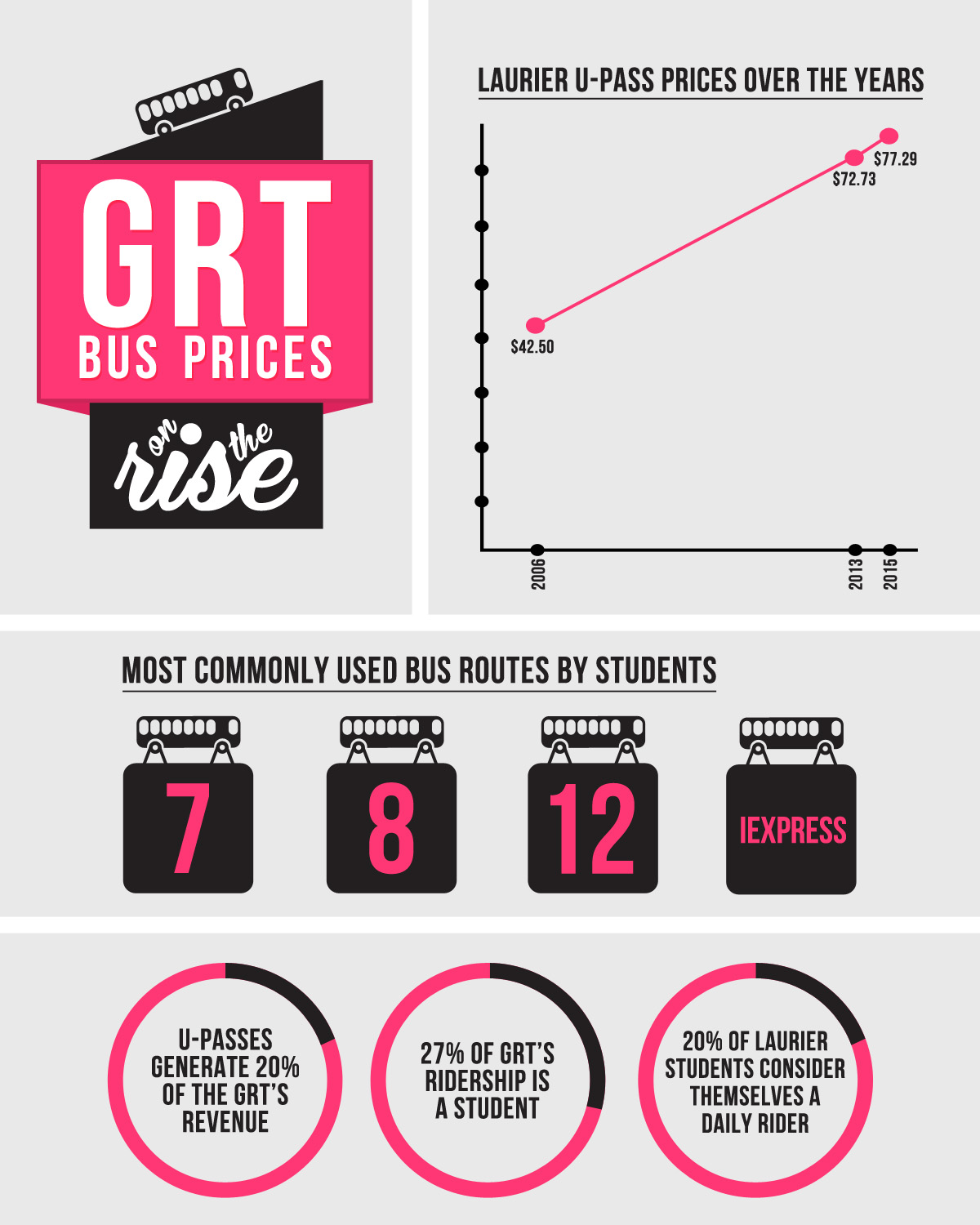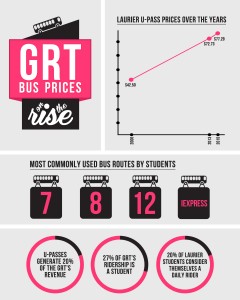GRT hikes prices up by seven per cent


Upcoming changes to bus fees at the Grand River Transit (GRT) have concerned student representatives from the University of Waterloo and Wilfrid Laurier University whom have bus pass partnerships with the transit service.
A seven per cent bus fare increase has been proposed by GRT, which plans to raise bus fees for the general riding public.
However, this fee will also apply to the U-pass collaboration between GRT and the two universities. The program allows students unlimited access to the transit system but is charged through their tuition.
The proposed increase would take the price from $72.73 per semester to $77.29.
And student organizations are not happy.
“We take these things very seriously,” said Adam Garcia, the vice president of education at the University of Waterloo Federation of Students. “These increases are well beyond a student’s ability to afford it.”
Garcia, as well as Stephen Franchetto, the vice president of university affairs at the Wilfrid Laurier University Students’ Union, brought their concerns to regional council, asking for fares to stay constant with the Consumer Price Index.
“If that’s not met we’re going to have to have a conversation internally with our execs and our board of directors about whether or not to put the fee to a referendum of our students and make them have the final decision,” Garcia said.
According to John Cicuttin, the director of transportation planning for GRT, the U-pass program makes up about 27 per cent of the GRT’s ridership.
“That generates around 20 per cent of our revenue,” he said.
He defended the seven per cent price hike by reflecting on large service improvements that took place in September.
This included a new iExpress 202 route targeted towards student commuters.
“We get more out of the system than revenue,” Cicuttin said. “It gives [students] an opportunity to select housing further away from campus and it’s used for entertainment, jobs, shopping and convenience.”
Garcia disagrees. He argues that not all students make use of the service.
“We might be about a quarter of the ridership, but that doesn’t really give any indication of how many students actually use the service,” he said. “We look at it from the perspective of the student who is not using the bus at all.”
Back in 2006 when the U-pass program was created at WLU Franchetto said that students were charged roughly $42.50 per semester.
“We’ve seen an increase of about 17 dollars in the past three years,” Garcia added. “That’s really concerning.”
Franchetto told The Cord that Laurier conducted its own survey in December, asking students their modes of transportation.
“Only about 20 per cent of [Laurier] students consider themselves a daily user of the GRT,” he said. “For a lot of students this deal just doesn’t make sense.”
Franchetto also said that WLUSU was in a “signaling year,” where contracts were only being looked at.
He hopes that WLUSU and GRT can be transparent with each other.
“I don’t think the intent right now is to walk away,” he said. “Next year we will be in a better position to renegotiate.”
The U-pass agreement with the student associations expires August of 2015. Regional council is scheduled to approve the budget on Jan. 15 and will notify student partners as to what will take affect for the September term.
“What we’re seeing is a ballooning increase each year,” Franchetto concluded. “And I just want students to be informed.”

